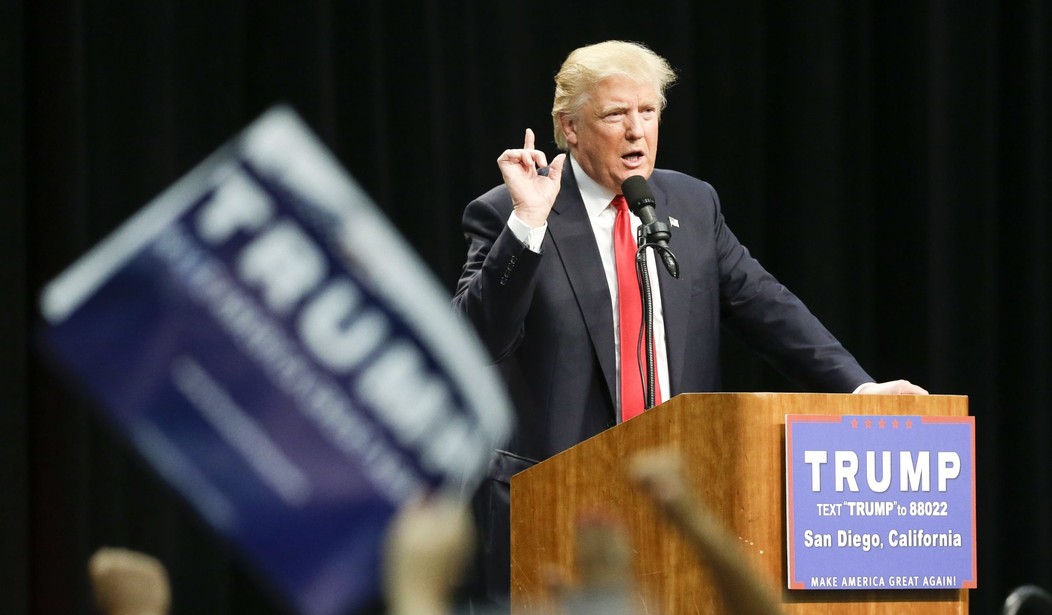On Thursday night, a “conscience clause” which would free Republican National Convention delegates to vote their consciences, rather than the way the state laws stipulate, failed at the convention’s Rules Committee meeting. Trump supporters are hailing this as the end of the insurgent anti-Trump movement, but they shouldn’t be quite so confident.
The idea behind this #FreeTheDelegates movement is that delegates are already free to vote their conscience, rather than being bound by state law. Even though the Rules Committee added language officially binding the delegates, the conscience clause could still be given a hearing at the full convention if it gets 28 signatures by the Monday deadline.
As ABC News reported, “the proposal was defeated by voice vote and no exact numbers were given.” The vote to end debate on the clause received only 21 “no” votes, which seems to hint that the anti-Trump delegates do not have enough votes to reach the 28-delegate threshold in order to guarantee the conscience clause a hearing at the full convention.
A group called Delegates Unbound, led by President Eric O’Keefe, opened an office in Cleveland and hired 15 “whips” who contacted delegates, pushing the idea that Trump’s delegates are not truly bound to him. Curly Haugland, a Rules Committee member, wrote the book Unbound: The Conscience of a Republican Delegate, arguing that GOP delegates have historically always retained the power to vote their conscience.
As National Review‘s David French wrote, “Some delegates maintain that Trump’s failure to unite the party, run a less gaffe-ridden campaign, and organize grassroots support over the last two months have changed the landscape that delegates face.”
Colorado delegate and Rules Committee member Kendal Unruh has led the movement for the conscience clause, which failed Thursday night. Nevertheless, she has insisted that delegates have a “God-given right” to vote freely.
But there’s no getting around it, she lost on Thursday night. Here’s Trump’s campaign manager, Paul Manafort, gloating about it.
Anti-Trump people get crushed at Rules Committee. It was never in doubt: Convention will honor will of people & nominate @realdonaldtrump.
— Paul Manafort (@PaulManafort) July 15, 2016
And RealClearPolitics’ James Arkin.
Boom. Unbinding the delegates fails with a voice vote. So ends the Never Trump movement — James Arkin (@JamesArkin) July 15, 2016
And the Trump campaign’s social media manager.
Never Trump just got crushed in Rules Committee 87-12. They never had a chance, people love Trump! He will MAKE AMERICA SAFE & GREAT AGAIN!
— Dan Scavino Jr. (@DanScavino) July 15, 2016
Nevertheless, these declarations are overconfident. There is still a chance that Unruh gains the 28 signatures she needs, but chances are heavily stacked against her movement.
Even Morton Blackwell, president and founder of the Leadership Institute, who endorsed Ted Cruz in the primary, voted to bind the delegates on Thursday. Blackwell explained that he doesn’t believe in changing the rules in the middle of the game, a source close to him told PJ Media.
Matthew Colter Hurtt, a Virginia delegate and conservative activist, argued that the traditional conscience clause — which activists like Unruh claim proves the Republican Party has always had essentially unbound delegates — has no real effect. He recalled not being free to vote for the candidate of his choice in the 2012 convention.
“Believe me, as a bound delegate in 2012, I attempted to vote my conscience,” Hurtt told PJ Media. “The Ron Paul people already learned this lesson.” He said the convention counted his vote the way the state law stipulated it, regardless of his own will.
According to Hurtt, the delegates are ceremonial, they do not actually choose the candidate for themselves.
So how long does Unruh have in order to Free the Delegates? Why are Republicans so hesitant to back Trump?
Nevertheless, Unruh and the Free the Delegates movement have until Monday, one hour after the the Rules Committee meeting, which Hurtt said would likely happen between 2 and 5 p.m. Despite the likelihood that the movement will go nowhere, pro-Trump declarations of victory are premature until between 3 and 6 p.m. Monday.
Furthermore, even if Free the Delegates fails and Trump becomes the Republican nominee, “Never Trump” Republicans can still vote against The Donald in November. On Friday morning, Unruh joined with Conservatives Against Trump, the #NeverTrump PAC, Never Means Never PAC, Liz Mair, and National Review contributing editor Quin Hillyer to publish an effective Declaration of Independence against Trump.
Like Thomas Jefferson’s most famous document, the article moves point by point against The Donald. It calls him an admirer of tyrants, says he “routinely tramples and cheats ordinary Americans,” “traffics in bigotry,” incited violence, is “fundamentally, irredeemably dishonest,” is “terrible — ignorant, and just plain wrong — on policy,” almost never speaks of freedom, liberty, or the Constitution, and supports torture.
The article is indeed damning, but it also mentions opposition to Hillary Clinton. These conservatives justify attacking Trump by calling for a different candidate to face Clinton.
The biggest problem, as has been the case almost since the beginning of the primary race, is that “Never Trump” Republicans do not all support one other candidate. In order for them to replace The Donald at the top of the ticket, these activists would have to put a different candidate forward — something they have as yet failed to do.
Many Republicans dislike The Donald and would prefer someone else, but the identity of that someone else really matters. Ted Cruz had a shot, but he pulled out of the race. Marco Rubio proved inspiring, but he could not win his own state. Scott Walker has been out of the race for just shy of a year. Until a credible replacement comes along, it will be Trump.
“Never Trump” can only succeed if it becomes “Always” for someone else. Until that candidate comes along, even a successful Free the Delegates movement could not convince the GOP to dump Trump.









Join the conversation as a VIP Member